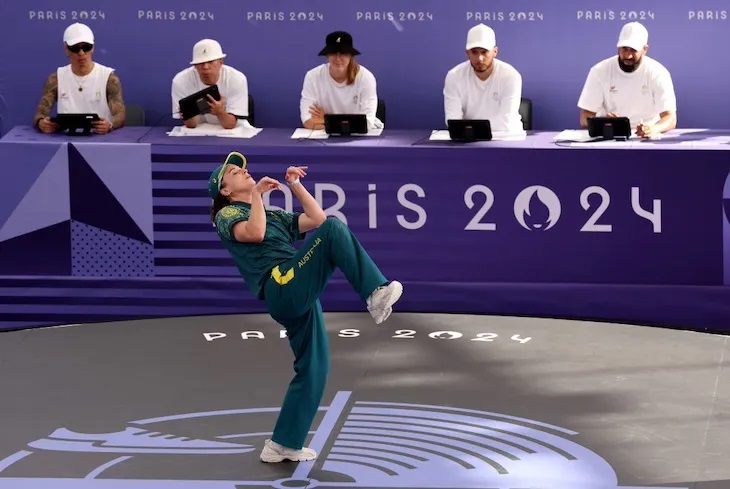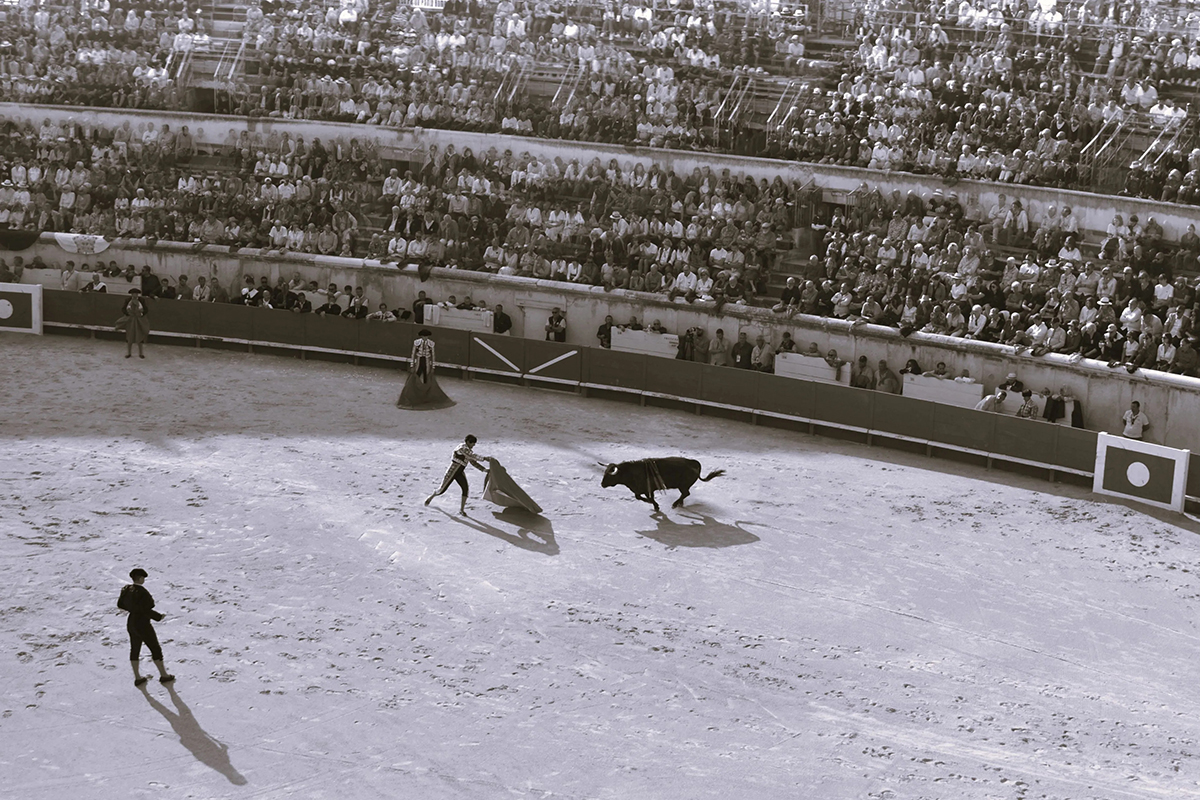How annoying must it be to win an Olympic title but be totally eclipsed by a competitor who failed to win a single contest? Such has been the fate of Ami Yuasa of Japan who defeated Dominika Banevič, the reigning global and European champion, to win the breaking gold medal at the recent Olympic Games. Her Olympic glory was totally overshadowed by thirty-six-year-old Australian, Rachael Gunn (known competitively as Raygun) whose performance went viral despite losing each of her three preliminary battles, including a contest against Banevič (known as Nicka).
Raygun may have been comprehensively defeated on the cypher (the circle in which the battle takes place) but her performance easily rivaled the profile of any gold medalist, although mostly in ridicule through TikTok memes and disparaging (even hateful) commentary. A deeper dive revealed a tiny undercurrent of praise for her Antipodean originality; an important trait in a sport that requires breakers to improvise movement in sixty-second rounds, to random music chosen by the event DJs.
On August 15, the Australian Olympic Committee issued a statement asserting the legitimacy of Raygun’s qualification and rebutting a number of allegations made against her. They made clear that neither Dr. Gunn nor her husband (Samuel Free) held any official positions relating to qualification for the Olympics or any responsibility for funding decisions. Raygun released a poignant reel on the same day describing the “hate” on social media as “devastating” and making it clear that she took the event seriously: “I worked my butt off, and I gave my all, truly,” she said.
The truth is that Raygun earned her Olympic place by winning the Oceanic qualifying competition, against a field of competitors from Australia, New Zealand, Papua New Guinea and Fiji, adjudicated by a panel of nine independent judges led by Katsu One, a legendary breaker from Japan. Some have argued that Molly Chapman (known as Holy Molly), the Australian Raygun defeated to claim the Olympic spot, was the better breaker. Chapman’s style is more in keeping with the popular expectation of breaking, but judges score on five criteria, including originality and musicality, and — as a dance critic — I could see that Raygun’s performance across all categories was sufficient to take the top spot. It wasn’t a surprise: in the 2023 World Championships Gunn had placed sixty-fourth and Chapman seventy-ninth. Contrary to the misinformed view that Raygun is a relative newcomer to breaking, this was her third world championships, and she had placed in the top three in Australian breaking contests for much of the last decade.
;768:[300×250,336×280,320×100];0:[300×250,320×100,320×50]”]On the evidence of filmed snippets that were shared after the event, Raygun’s performance in Paris seemed peculiar. She omitted traditional power moves (spins, flares and floats) and did not possess the speed and athleticism of a top b-girl. Instead, she performed a number of “goofy” dance moves, such as the now infamous “kangaroo hop.”
It is now not possible to access her six routines in the preliminaries, but I was able to see them before their online presence disappeared and those much-shared memes don’t do justice to her range. As a former Olympic team manager, I can understand the sporting mentality of adjusting her performance to compete against the reigning world champion and two other better b-girls. Raygun couldn’t hope to beat them in terms of athleticism and technique, so she went for originality.
Much online criticism refers to the fact that she didn’t win a point. But there are no points in breaking. A panel of nine judges makes comparisons between the two breakers across each category and seven judges determined that Raygun outperformed her opponents (six times in originality and once for vocabulary). Even against Nicka, the world champion and eventual silver medalist, Raygun took the originality category on the first-round scorecards of the Spanish and German judges (with the Brazilian judge awarding a draw).
Given all the misinformation concerning Raygun’s performance, it might be surprising to learn that she didn’t finish last. There were seventeen entries for the contest (not sixteen as many reports have stated) which necessitated a pre-qualifier battle between Manizha Talash of the refugee Olympic team and India Sardjoe of the Netherlands. Having lost this opening battle, Talash was subsequently disqualified for displaying a “Free Afghan Women” slogan. Since Gunn was automatically advanced to the last sixteen, Talash was placed last.
Another nonsense to come from the Raygun affair is the suggestion, repeated many times on social media, that the decision to exclude breaking from the 2028 Olympic Games had something to do with her performance despite the fact that this decision was made many months ago. Whether breaking ever regains a place in the Olympics should have nothing to do with Raygun but it will take a long time for this misplaced furor to die down.
;768:[300×250,336×280,320×100];0:[300×250,320×100,320×50]”]Graham Watts is a freelance writer and dance critic. He was weapon captain of the saber team at the Barcelona (1992) Olympics and fencing team leader at the Athens (2004) and Beijing (2008) Olympics.
This article was originally published on The Spectator’s UK website.

























